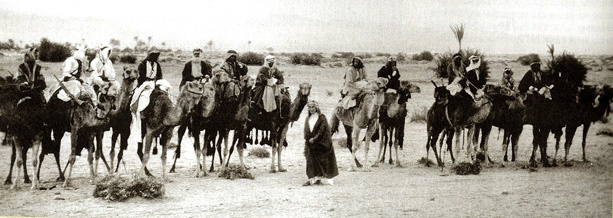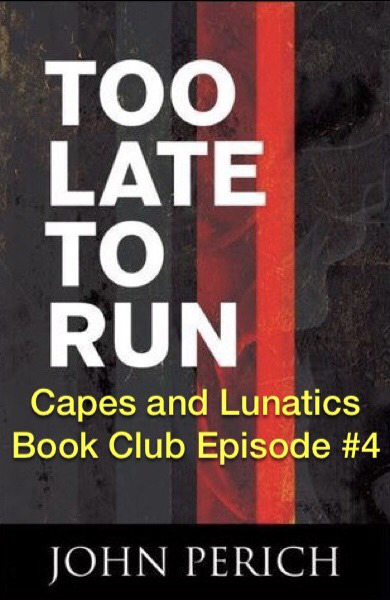 T.E. Lawrence with Emir Feisal and his bodyguard troops at Aqaba
T.E. Lawrence with Emir Feisal and his bodyguard troops at Aqaba
One of the books I’m currently reading is Hero, the Life and Legend of Lawrence of Arabia by Michael Korda. I’m in chapter two of the book, where T.E. Lawrence is sizing up Emir Feisal’s army of Arab irregulars (tribesmen) and their fighting abilities against the Turkish army.
While slowly reading and sipping coffee this morning, I read these lines on page 58:
…The Juheina tribe, on Feisal’s left, lost heart quickly and fled the battlefield. The Juheina would later claim that they had merely been tired and thirsty and had needed a coffee break…their flight led to the rapid collapse of the rest of Feisal’s line and a disorderly rout…
One hopes they were going for expresso, because the regular coffee wasn’t doing it!
Anyway, in a Western army—this was 1916, the middle of WWI—a commander would have most likely faced a firing squad for this.
Later on, when Lawrence met up with Feisal, the Emir wasn’t upset at all about his army’s collapse in the face of a Turkish force half the size of his, in fact Feisal was in a rather “jolly mood.” He was trading good natured taunts and insults with another Arab commander over “the speed” in which his forces had also “run away” in the face of a Turkish force.
One of the early lessons Lawrence took from Emir Fiesal, the man Lawrence felt had the heroic qualities to lead the Arab revolt, was a sense of humor, “that invariable magnet of Arab good will” Lawrence wrote, that was one of the key qualities that allowed Fiesal to maintain the cohesion and loyalty of the various tribal leaders. “The tribesmen,” Korda wrote, “responded poorly to criticism or reproof but enjoyed a good story even when it was at their own expense.”
Fiesal’s army wasn’t a disciplined professional army but a collection of Bedouin tribes, any of which, if they’d had enough, could walk away at any time. To keep this army together would take a leader adept in emotional intelligence, which Fiesal seemed naturally endowed with.
Share this:- More


![Okey Ndibe [Photo: The Paradigm]](/ai/032/360/32360.jpg)



